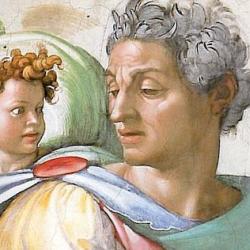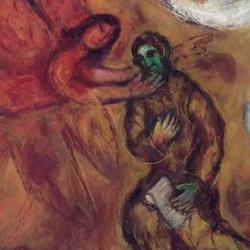INTRODUCTION
Because it contains so many Messianic passages (e.g., 7:1-14; 9:1-7; 11:1-10; 42:1-4; 53:1-12), Christians have long regarded the book of Isaiah the prophet (so called in Isaiah 37:2; 38:1; 39:3) as a kind of “fifth gospel.” This week, we begin our study in the book by asking the question, What is a prophet? We must answer that question from a variety of different perspectives.
THE TEXT
“The vision of Isaiah the son of Amoz, which he saw concerning Judah and Jerusalem in the days of Usziah, Jotham, Ahaz, and Hezekiah, kings of Judah. ‘Hear, O heavens, and give ear, O earth! For the LORD has spoken . . . .” (Isaiah 1:1-20).
PRIEST, KING, PROPHET
The Bible progresses from priest to king to prophet. These functions overlap and build on one another, but still there is a progression. The Mosaic era was priestly, the Davidic was kingly, and the exilic and post-exilic period was prophetic. Priests operate in the sanctuary; kings in the land; prophets in the world. Priests study the detailed regulations of Torah; kings rule by wisdom; prophets receive the Spirit. Prophets are sacred architects; kings build temples; priests serve in temples. Priests preserve the past; kings apply wisdom to presence circumstances; prophets speak the future. Human life progresses in the same way, from priestly childhood under guardians and managers, to kingly adulthood, to prophetic maturity.
PROPHET AND KING
Abraham was the first man called a prophet (Genesis 20:7) and Moses was the model prophet (Deuteronomy 18), but prophets in abundance at the time of the monarchy. Samuel is the first to be called a “seer” (1 Samuel 9), and after him prophets appear regularly. Prophets are God’s instruments for guiding and rebuking kings. Prophets are messengers of Yahweh’s justice. Nathan confronts David, Elijah rebukes Ahab, Isaiah confronts the social evils of his time, Jeremiah advises kings and denounces wicked nobles. It is a cliché, but it is true: Prophets speak truth to power.
IN THE DIVINE COUNCIL
Fundamentally, prophets are members of God’s council (1 Kings 22; Jeremiah 23:18-22). As officers of the court, prophets hear Yahweh’s judgments and deliver them to the people (Yahweh’s “case” against Israel, cf. Hosea 4:1; Micah 6:2), but they also intercede before Yahweh (cf. Amos 3). Abraham is a prophet because he intercedes for Abimelech (Genesis 20), as he had for Sodom (Genesis 18). Moses is a prophet not only when he brings the Torah from Sinai but also when he pleads for Israel after the golden calf incident (Exodus 33-34). Prophets do tell the future because they have access to Yahweh’s deliberations and judgments.
ALL ARE PROPHETS
In Jesus, the Word became flesh and dwelt among us (John 1:14). The Father’s decree, His plan, the mystery of the world is manifested to us in Jesus. So when the Spirit of Jesus is poured out at Pentecost, the Spirit makes prophets out of all the disciples (Joel 2:28-32; Acts 2:17). Through Jesus, Moses’ wish that “all Yahweh’s people were prophets” (Numbers 11:29) is fulfilled. We are all invited into the council, all given insight by the Spirit into God’s plans for the world, all given the privilege of the floor to offer our petitions and cases.














